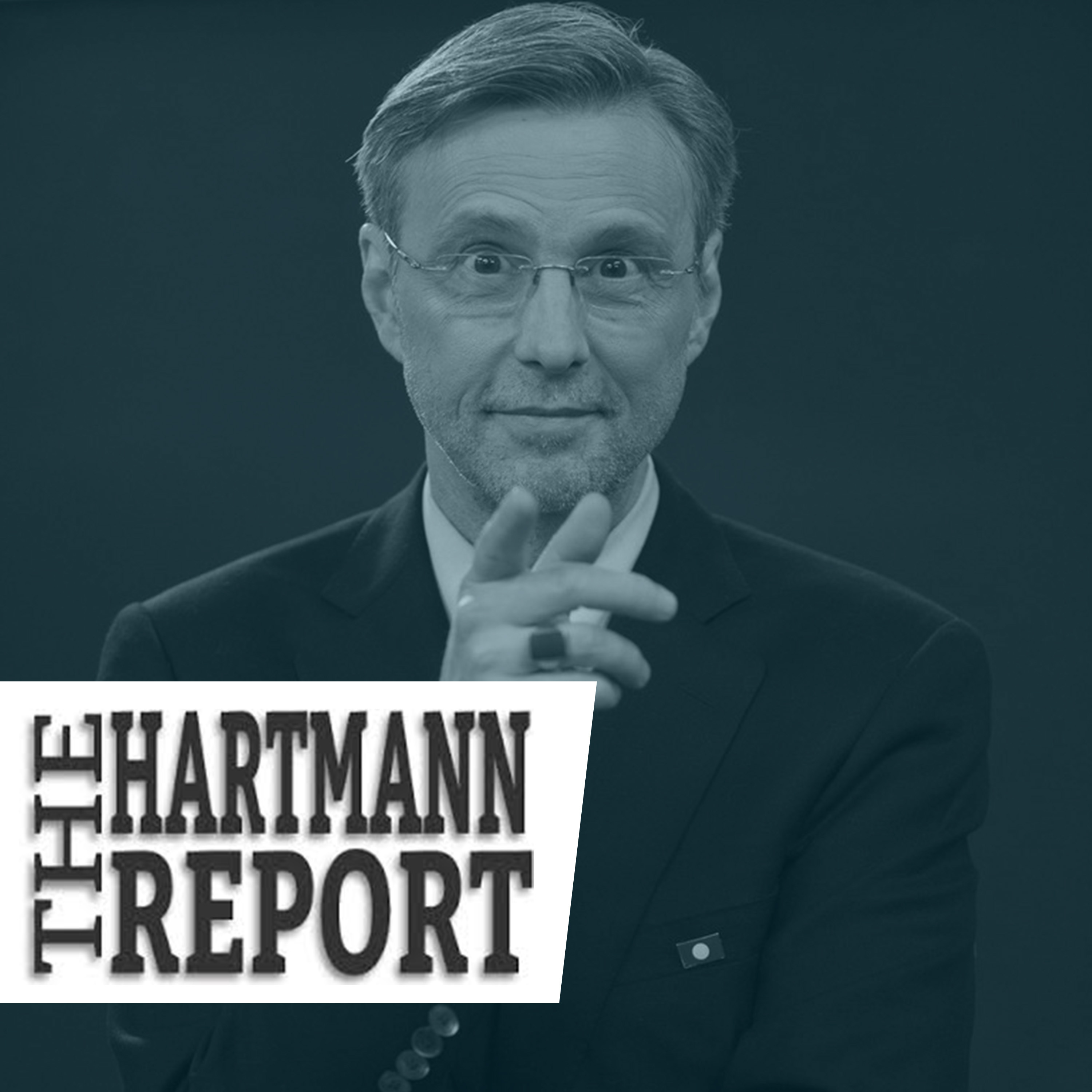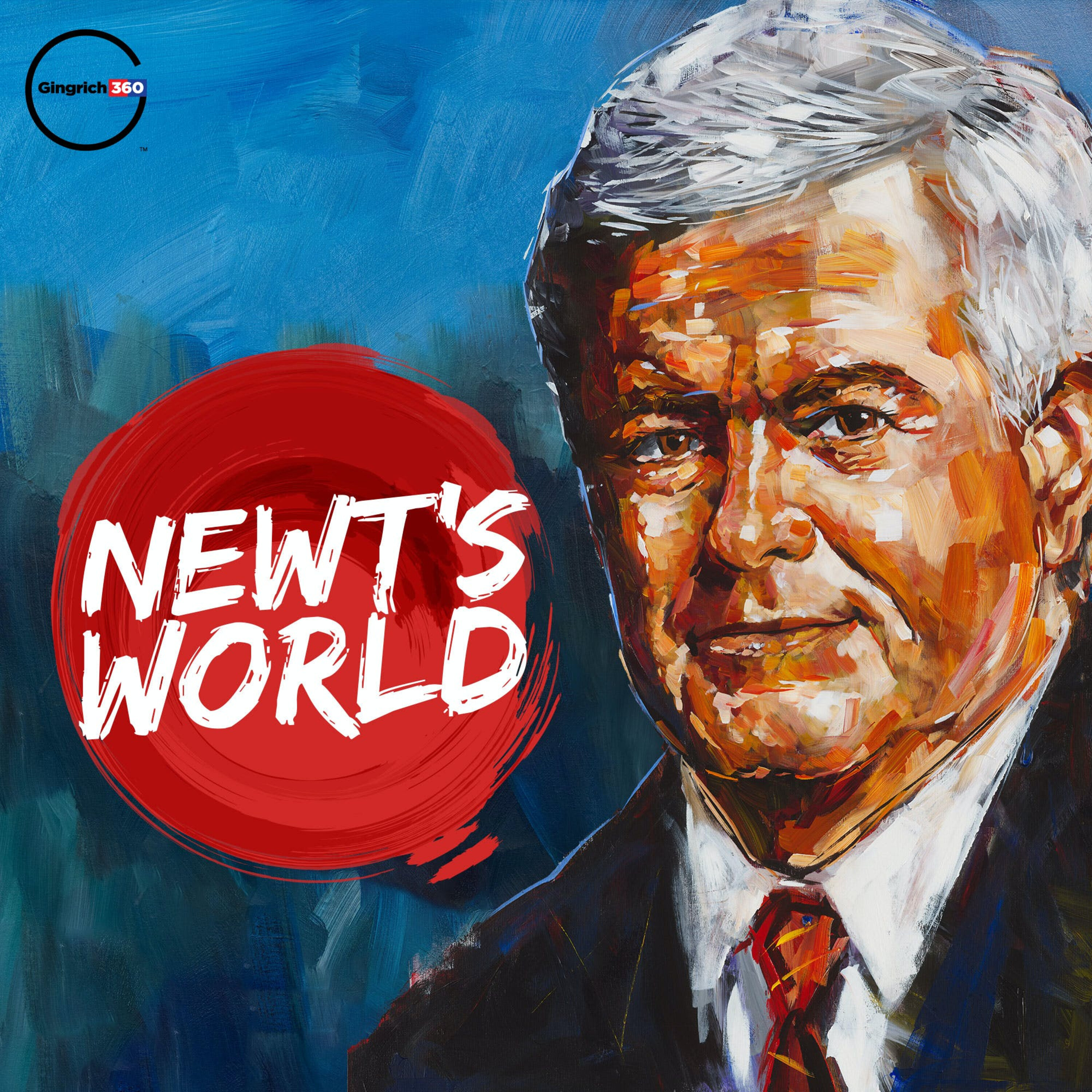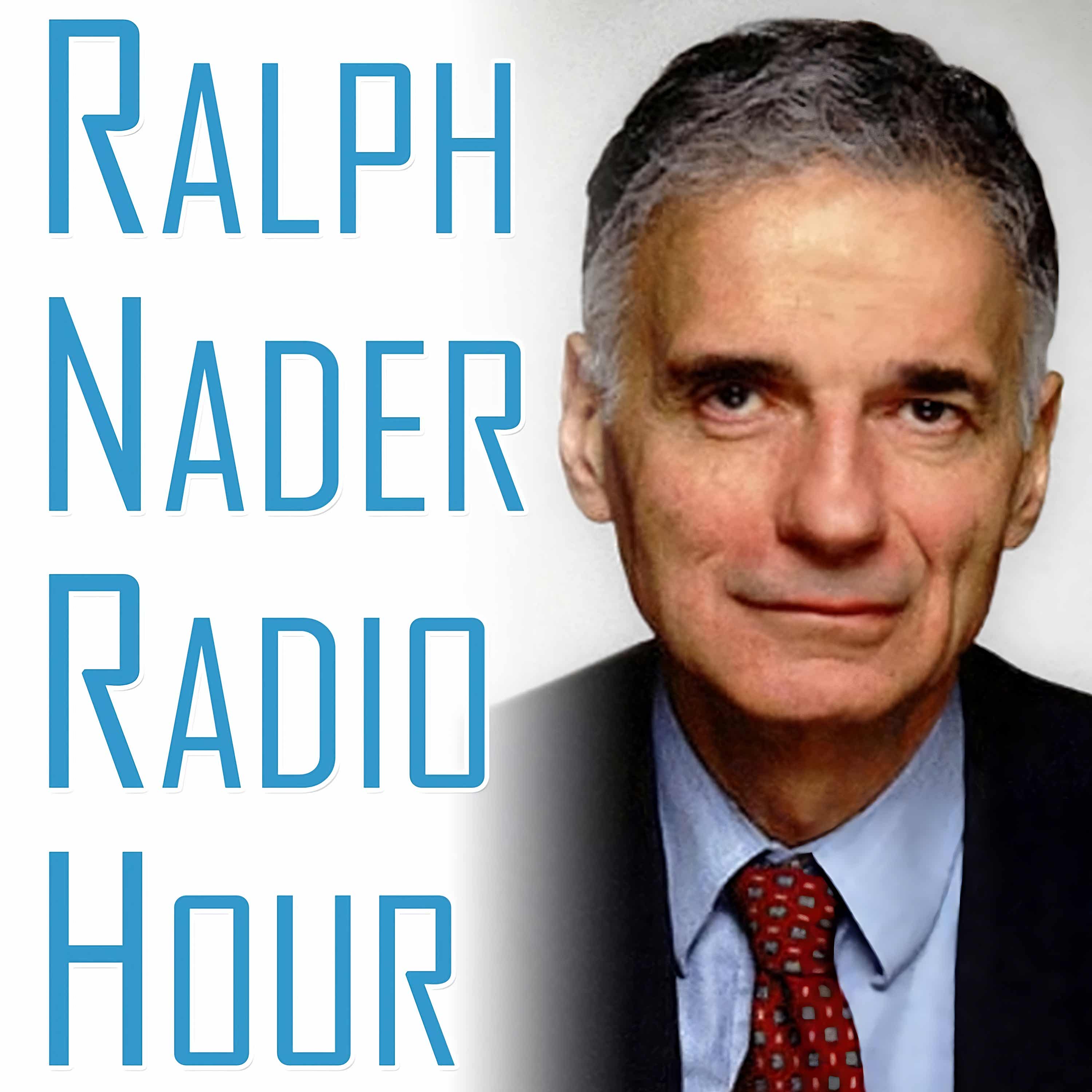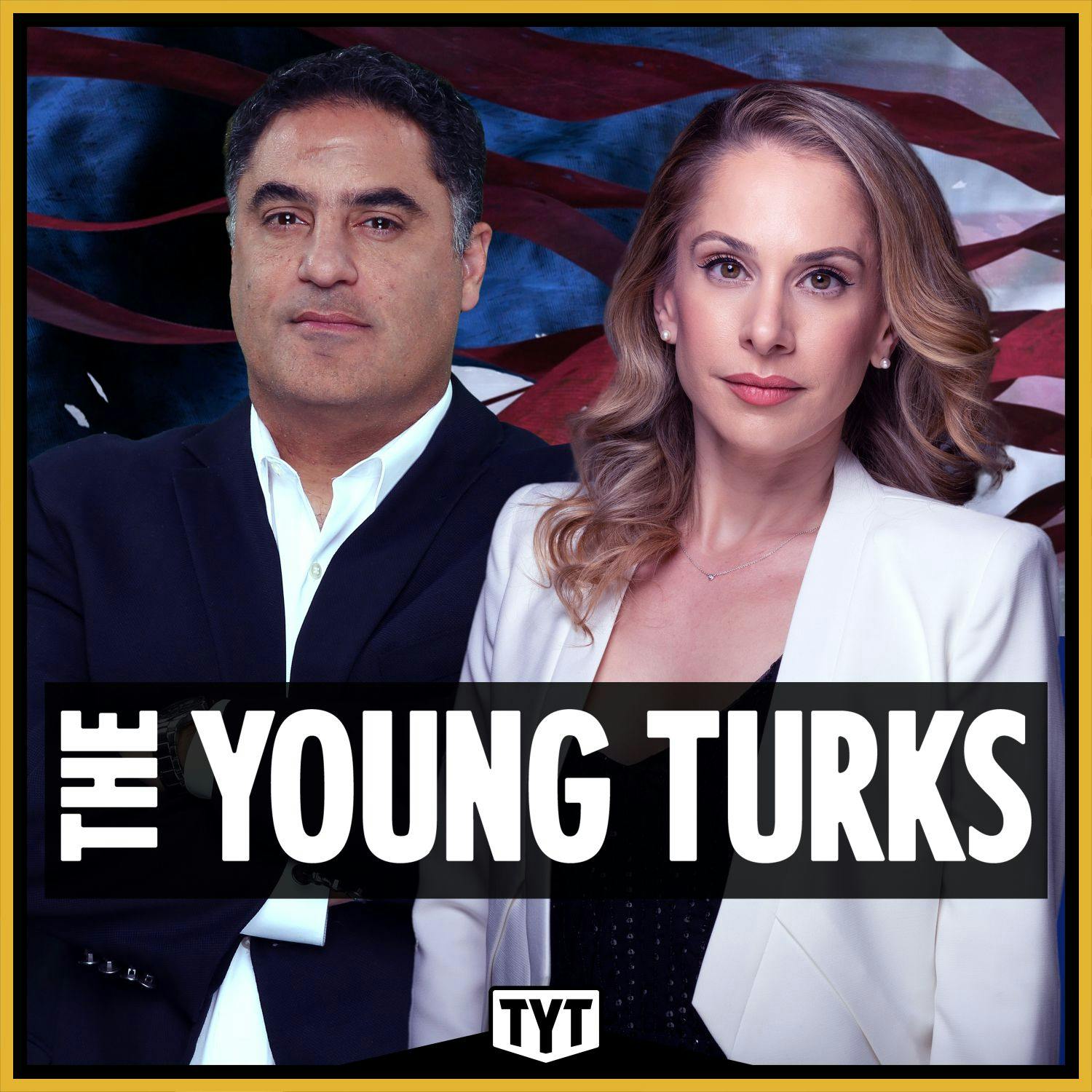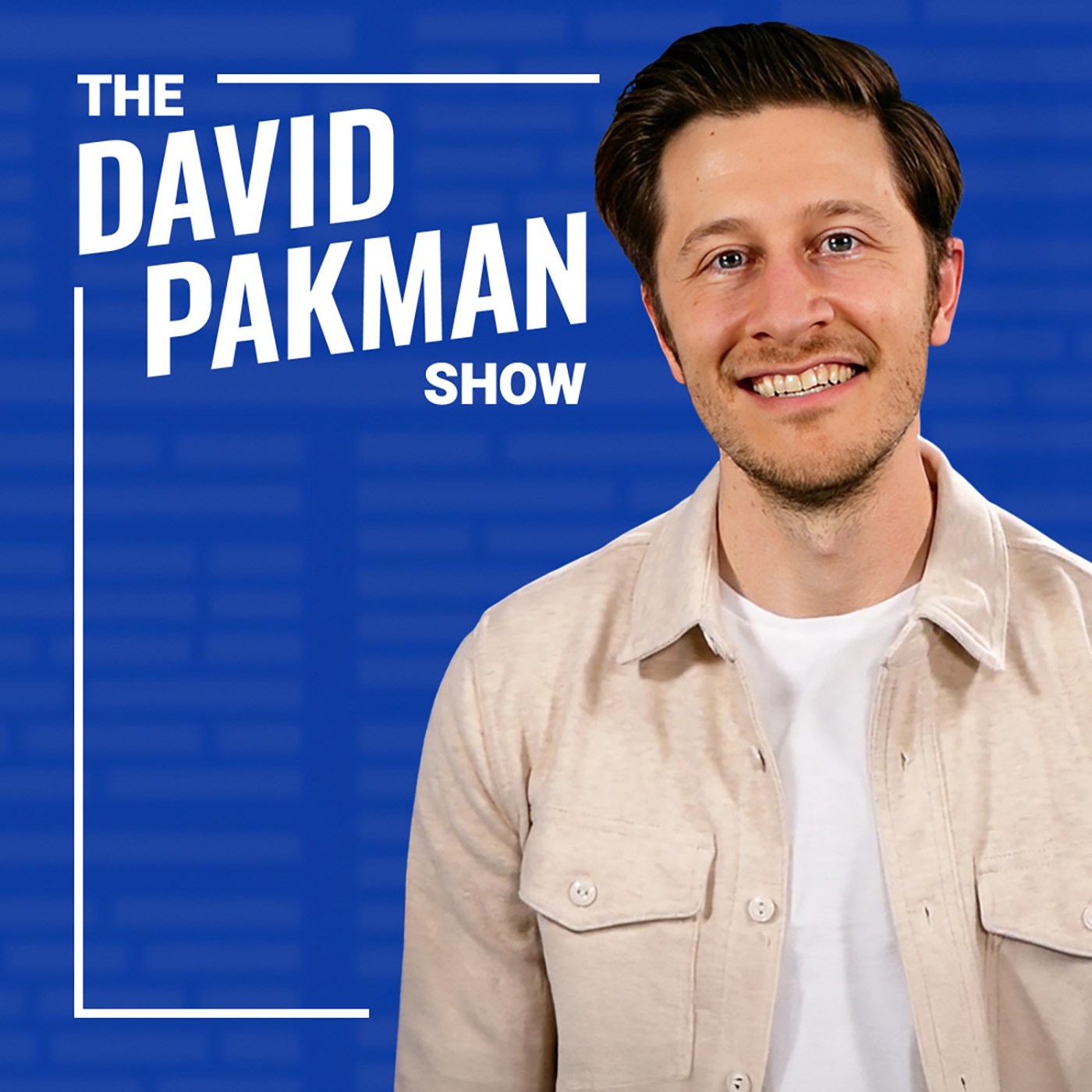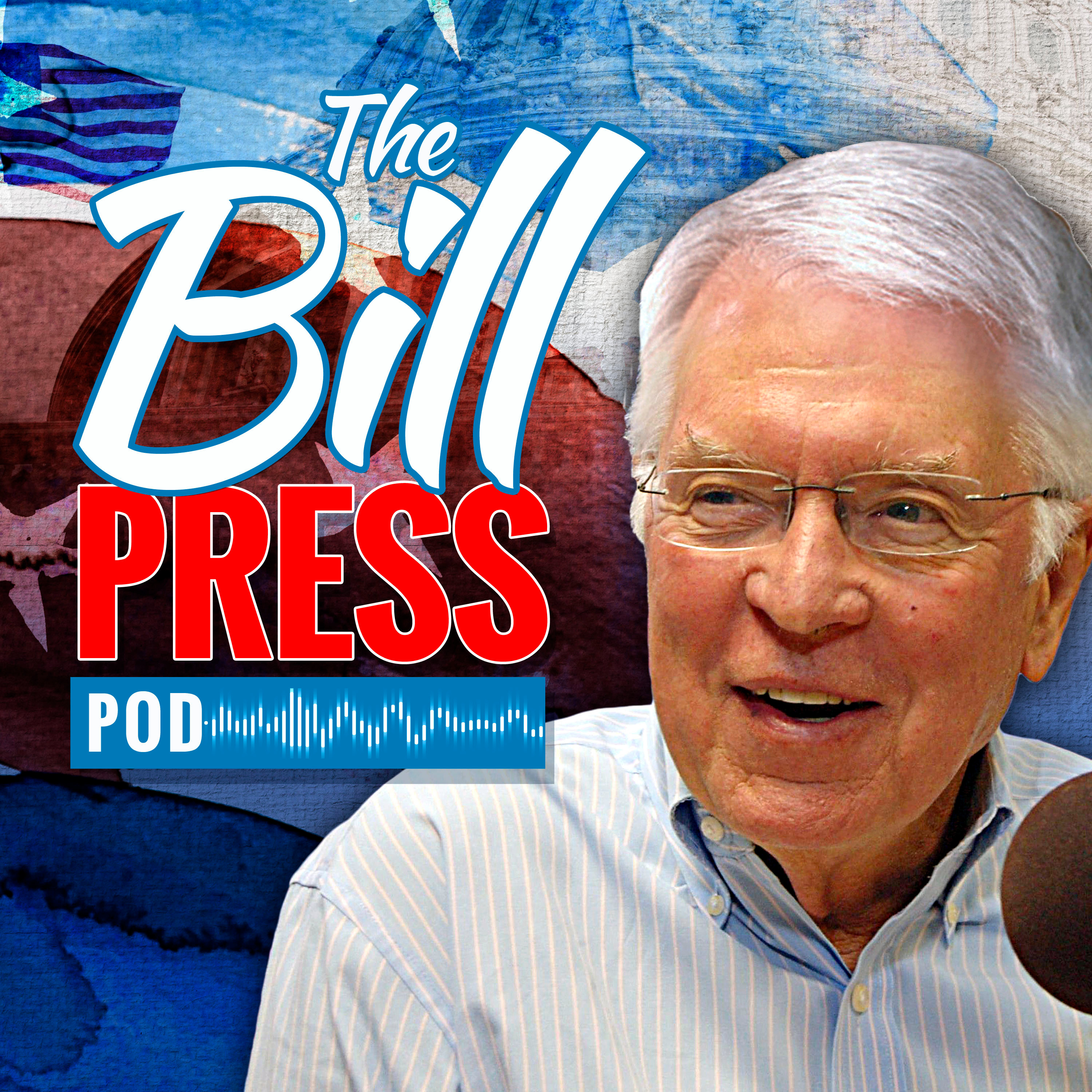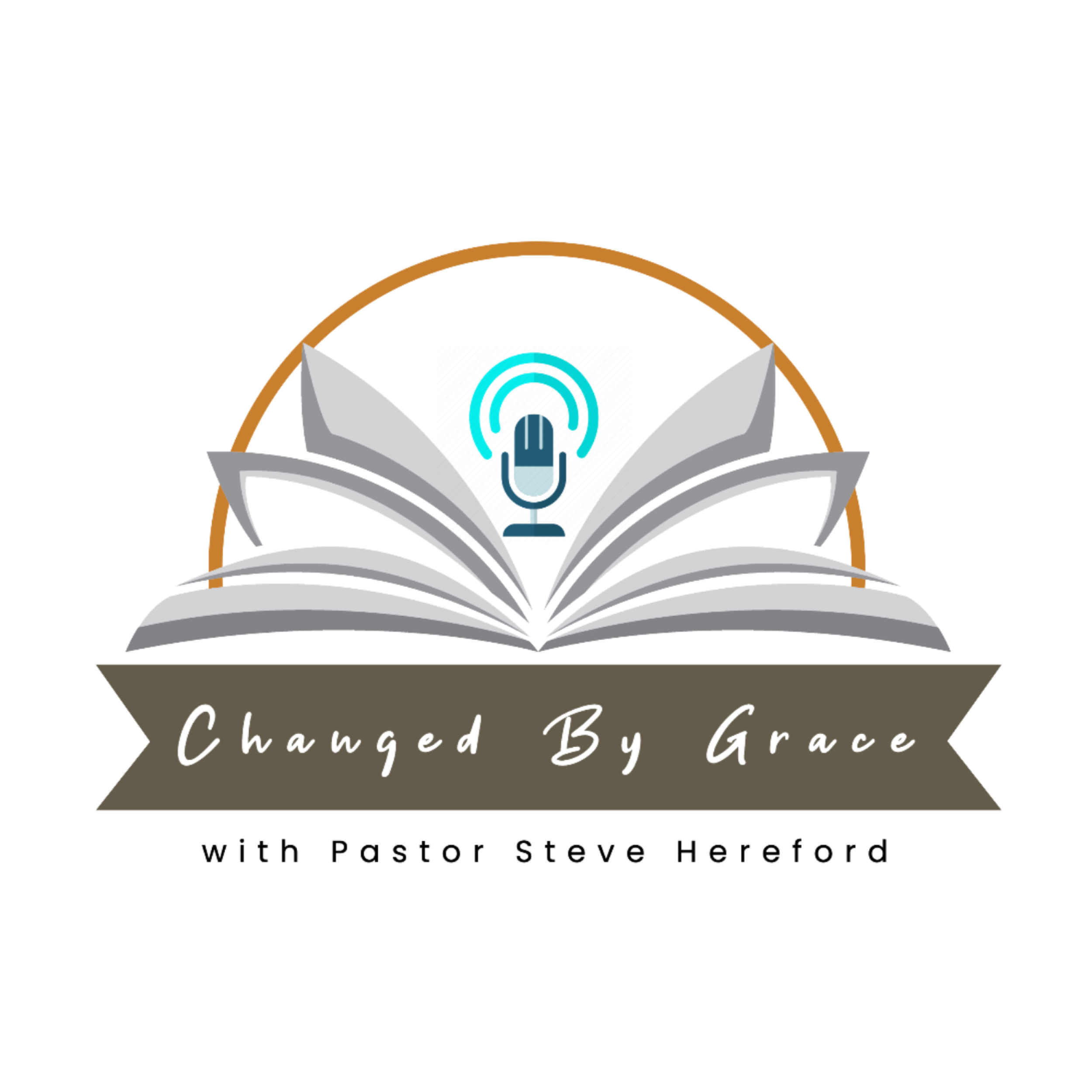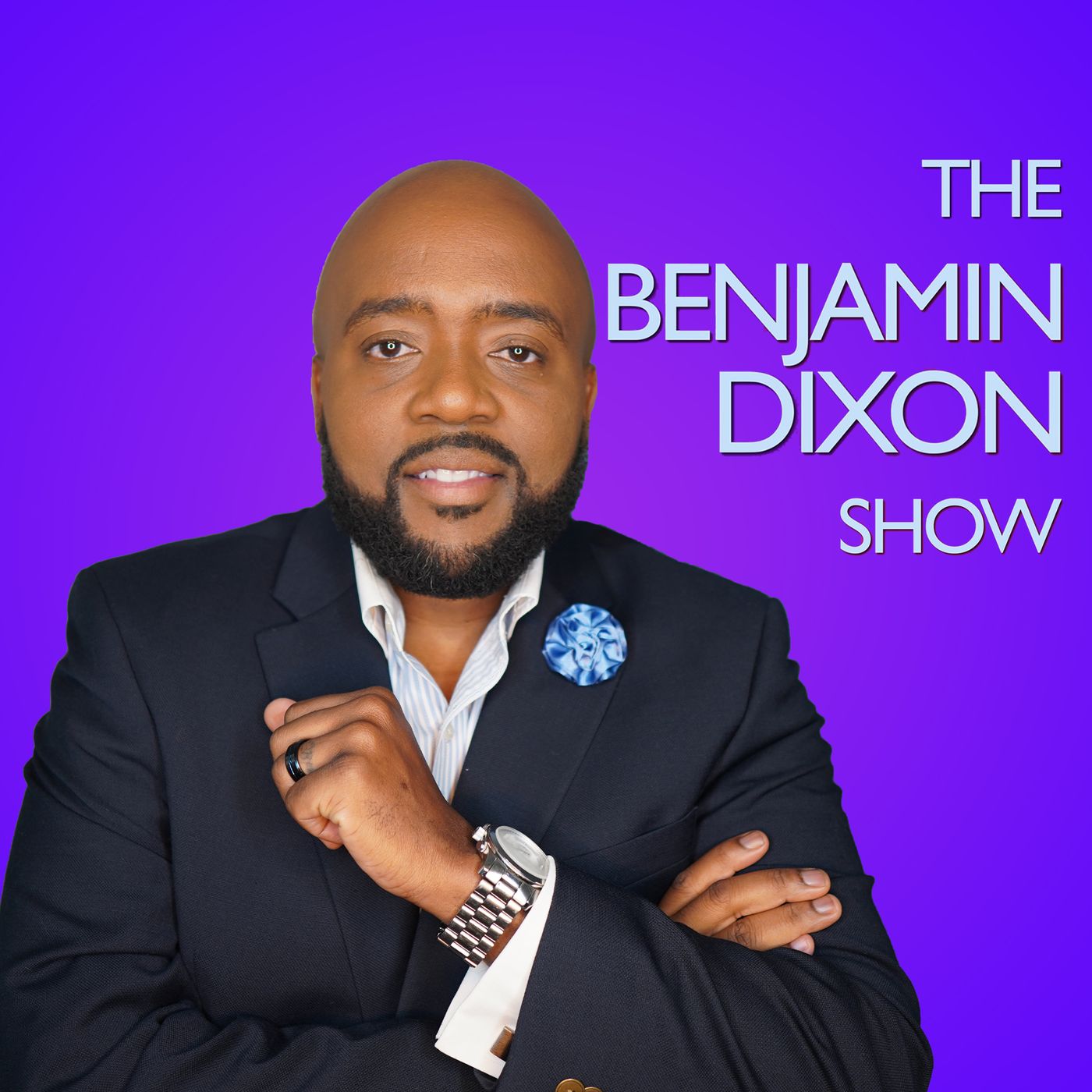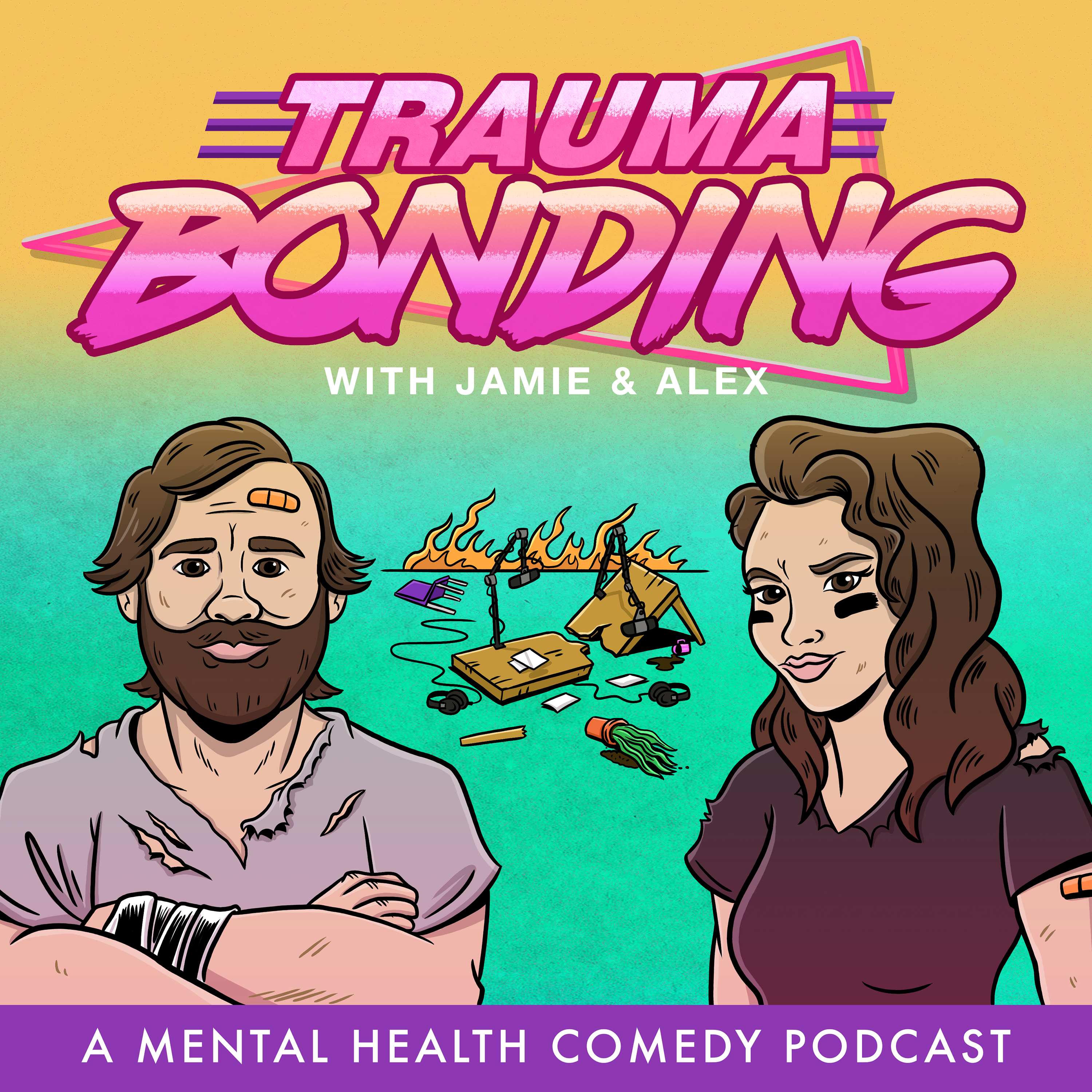
The Darrell McClain show
Independent media that won't reinforce tribalism. We have one Planet; nobody's leaving so let’s reason together!! Darrell McClain is a Military veteran with an abnormal interest in politics, economics, religion, philosophy, science, and literature. He's the author of Faith and the Ballot: A Christian's Guide to Voting, Unity, and Witness in Divided Times. He was born and raised in Jacksonville FL, and went to Edward H white High School,l where he wrestled under Coach Jermy Smith and The Late Brian Gilbert. He was a team wrestling captain, District champion, and an NHSCA All-American in freestyle Wrestling. He received a wrestling scholarship from Waldorf University in Forest City, Iowa. After a short period, he decided he no longer wanted to cut weight, effectively ending his college wrestling journey. Darrell McClain is an Ordained Pastor under the Universal Life Church and is still in good standing as well as a Minister for the American Marrige Ministries . He's a Believer in The Doctrines of Grace, Also Known as Calvinism. He joined the United States Navy in 2008 and was A Master at Arms (military police officer) He was awarded several awards while on active duty, including an expeditionary combat medal, a Global War on Terror medal, a National Defense Medal, a Korean Defense Medal, and multiple Navy achievement medals. While In the Navy, he was also the assistant wrestling coach at Robert E Lee High School. He's a Black Belt in Brazilian Jiu-Jitsu under 6th-degree black belt Gustavo Machado, Darrell Trains At Gustavo Machado Norfolk under the 4th-degree black belt, and Former Marine Professor Mark Sausser. He went to school for psychology at American Military University and for criminal justice at ECPI University.
The Darrell McClain show
When Numbers Tell the Truth, Who's Listening?
The American economy isn't just failing Black Americans—it's designed that way. In this eye-opening episode, we dive deep into the July 2025 unemployment statistics revealing a persistent, troubling pattern: while national unemployment sits at 4.2%, Black men face 7.5% unemployment, Black women 6.1%, and young Black Americans an alarming 17.9%. These aren't just numbers—they represent families living in economic uncertainty and a system that consistently produces racial disparities regardless of which political party holds power.
"Show me your policy and I'll show you your passion," becomes our rallying cry as we examine how the federal government—once a reliable employer offering decent wages and benefits to Black workers, especially women—has systematically dismantled DEI programs, leaving those workers to bear the consequences. The crisis demands targeted solutions: apprenticeships in underemployed zip codes, federal equity audits with actual enforcement power, and reinvestment in sectors that historically employed Black workers.
The conversation broadens into a disturbing examination of how economic truth itself has become politicized, with the head of the Bureau of Labor Statistics reportedly fired for publishing unflattering economic data. Meanwhile, new tariffs on Canadian goods, Swiss pharmaceuticals, and auto parts represent economic nationalism masquerading as patriotism—ultimately functioning as taxes on everyday Americans rather than foreign producers.
We also explore how democracy erodes not through dramatic coups but through steady erosion: intimidation of public servants, revenge-driven politics, and media self-censorship on critical issues like Gaza. When journalists are silenced by their employers rather than government censors, and prosecutors face investigation for daring to hold the powerful accountable, we're witnessing the quiet dismantling of democratic norms.
The South Park Republicans of yesterday have evolved into today's MAGA youth movement, but signs of disillusionment are emerging as podcasters who once supported Trump now criticize his policies. Join us for this unflinching analysis of how economic systems, political pressure, and media cowardice shape our collective reality—and what we must do to build a more just society.
Welcome to the Darrell McClain Show coming to you from California Independent media that won't reinforce tribalism. We have one planet. Nobody is leaving, so let us reason together. You're listening to episode 468. Let's get into the show.
Speaker 1:So the unemployment numbers came in and they're not just bad, they are predictable. What's going on? So we have to look at what's happening beneath the headlines and we're going to break down the most recent unemployment data, specifically what it means for black Americans in the country. The number came in for July 2025. And, spoiler alert, it is not looking great. But more than that, it's not surprising, and the part that should bother you is this the unemployment for July 2020-25 was 7.2% Overall US unemployment 4.2% for black men, 7. Five percent for black women, six point one percent, and if you're a young black person from the age of 16 to 24, you were sitting at a brutal 17.9 percent.
Speaker 1:So you have to think about something, and that is that those numbers, those stats, those stories, their pressure, they are entire families in an economic uncertainty, and the scary part is the type of gap isn't new. It's actually somewhat expected, and that's where we have to focus not just on the crisis, but the consistency of it. This is the country's labor market and it has a track record for failing people, and nobody seems to treat it like it's a systemic emergency. Now, of course, I'd make the claim that it's not just a glitch in the system, it's a feature. People love to say things like the economy's bouncing back or the job market is strong, and I'm going to always ask the question for who? Because every time we hit a recovery mode, the black unemployment still doubles or worse. You have to stop asking what's wrong with the people and start asking what is wrong with the system. This isn't a blip. This is how the economy was designed to operate keeping labor on the margins in unstable sectors. The contract works, the job without benefits, without union protections, without upward mobility. We just have to call it what it is the federal job slap and the DEI rollback.
Speaker 1:We have to talk about the federal government real quick, and when I say that it's, a lot of people didn't realize that the public sector, especially the government, has historically been one of the few places where black workers, especially black women, could actually get decent pay, benefits and stability. But what happened when the 2025 layoffs DI program started getting gutted? And surprise, surprise, of course, the people who were going to get gutted first are going to be those black women who had a majority of jobs in the federal government. It's just not a coincidence. The very programs that were meant to close opportunity gaps are being painted as divisive or ineffective by a group of politicians who actually never wanted the programs to succeed in the first place. And to the workers, they were the ones who were left holding the bag again.
Speaker 1:So there's no easy villains here, it's just systemic truths. So if you look at the trends I'm not trying to feed a narrative that's all happening because of one political party or another. Truth is both major parties have had opportunities to close these gaps. Neither one has done enough. But we also can't let the um. I don't want us to get nihilistic about it, because every policy choice, from the minimum wage to job training, to access to credit, to education funding matters. There aren't just abstract debates. They shape real opportunity.
Speaker 1:And until we demand that lawmakers treat the unemployment crisis like a structural crisis, it is we're going to keep having this conversation in 2026 and 2027, and so on and so on in 2026 and in 2027, and so on and so on. So what should we actually do? And here's what I'm proposing? Nothing revolutionary, just partly rational. Federal and state level apprenticeships and workforce investment programs specifically targeted at the youth in underemployed, zip codes, a federal equity audit of hiring practices to the public and private sector, not a report that sits on a shelf, something with the teeth. Uh, reinventing in sectors that historically employed workers, black workers, postal services, transportations, education and making them stable again. Stop pretending DEI is a problem. When it was barely tried in good faith. You do that and you combine it with a criminal justice reform, transportation access and affordable health care and guess what? The unemployment gap starts to close. But you got to want it. You actually have to want to succeed to close. But you got to want it. You actually have to want to succeed. You have to do it and you got to fight for it, because the system as it is is not going to fix itself.
Speaker 1:The final thought on this is, of course, what I always say is a policy is a moral document. Show me your policy and I'll show you your passion. I'll leave you with this segment by saying any time a government writes a budget or a corporation hires a team or city zones and neighborhood, that's just not economics, that's a moral choice. And if we continue to look at the data showing unemployment consistently double the national average, especially when it comes to the black population and the youth national average, and do nothing the black population and the youth national average and do nothing, we're not just accepting the inequality, we're starting to endorse it. But I believe it's better is possible Not easy, but possible. If you found the breakdown useful, do me a favor subscribe, share, leave a rating and, as always, keep your politics grounded, your policy informed and your heart open. I will be out and about for the rest of the day. I'll do another segment later on. Coming to you from California, terrell McClain out.
Speaker 1:Welcome back to the Darrell McLean show, the independent media that will reinforce tribalism. Of course. I am talking to you from California. We're going to talk about who owns the numbers now, the battle for economic truth in our post-fact age. You know, once upon a time when the numbers came out the jobs numbers, inflation, the labor force participation whether you were on the left or the right, we all somewhat collectively respected the numbers. We might disagree about how to fix the problem, but we didn't just call the math a lie. But now I think we have crossed the line. Last week, erica McArthur, the head of the Bureau of Labor Statistics, was fired. Why? Because she oversaw the participation and publications of a drop report that didn't make the administration look good. Not because the numbers were inaccurate, not because the Bureau is corrupt, but because the economists told the truth.
Speaker 1:Now, folks, let me be clear. This is not just about one economist. This is about our epistemology, and that's the study of how we know what's true. When a nation begins to punish the truth tellers because the truth is inconvenient to the current rulers. We are no longer in a republic, we are living under the shadow of autocracy. Now. The bureau of labor statistics have been apolitical for decades. Its job is to measure, not massage the facts, but to trend um, kind of tell you where the trend line is going when it comes to the economic output.
Speaker 1:If we continue to see stuff like the firing of the economists for reporting the facts, you'll start seeing manipulated data, and I mean like the manipulated data we used to see in authoritarian um and those authoritarian countries that we used to mock. Yeah, dear leader, has solved the unemployment rate. Growth is always at 6%. That's not governance, that's propaganda. So now we have to ask who will you believe the numbers or the administration who fires anyone who tells the truth about them. And here's the kicker when you undermine data, you hurt working class people first, because it's not the wealthy who depend on food stamp eligibility tables or the cost of living indexes. It's the single mom calculating how to stretch $13 an hour. It's the laid off factory worker wondering why the job fair is a ghost town. We need objective data, the way a pilot needs altimeters, because without it the country's flying blind and we are headed for turbulence.
Speaker 1:We have to talk about the tariff tantrum and when America taxes itself in the name of patriotism. You ever notice nowadays how politicians love to frame tariffs like they're sticking it to the bad guys overseas? We're going to punish Canada by making Canadians pay more. On TV, at least I should say is that tariffs are just attacks on you, attacks on me, on working class people, and not some Swiss banker or some shipping Chinese tycoon. And this week the administration rolled out the biggest set of global tariffs in over four decades. I saw the number at 35 percent tariff on Canadian goods, new tax on pharmaceuticals from Switzerland, and no, these just aren't foreign problems. They are costs that the American consumers will end up eating. Tariffs on prescription drugs that means your grandparents pay more. Tariffs on dairy from Canada. That means your grocery prices go up. Tariffs on auto parts that means mechanics are going to hit you with a new inflation rate.
Speaker 1:We have to look at it in a kind of sensible way. We have to be for fair trade and we should be that, but we also have to understand the pain of the deindustrialization. But this isn't the way. The economic nationalism, dressed up like presiatism, is going to come back to us with a lot of economic self-harm. If we want to fix trade, we need to invest in American workers. We need to protect their wages. We need to rebuild unions. We need to fund apprenticeship programs. Now what we don't need to do is don't tax the people who can't afford another 50 cents on the eggs just because we want to win the news cycle.
Speaker 1:This is what happens when policy becomes performance. The working class pays the price for somebody else's political cosplay drift and the tyranny of the American exceptionalism is. Here's the question worth asking. I'll put it this way how do democracies actually die? Not all at once, not with tanks in the streets, not with burning flags and falling statues. Sometimes it dies with a shrug and falling statues. Sometimes it dies with a shrug.
Speaker 1:So this past few weeks I watched an uncomfortable series of decisions, small in isolation, chilling in totality the firing of public servants for doing their job, the public pressure on judges and journalists, the refusal to commit peaceful transitions of power, the stoking of vengeance in politics and, of course, as we talked about on the other show, the setting on fire of an actual political statement. And then the slow drip of fear senators too scared to speak up, bureaucrats too worried to blow the whistle. Voters too exhausted to speak up. Bureaucrats too worried to blow the whistle. Voters too exhausted to fight back. This is the American authoritarian pattern. Not a sudden storm, but just steady erosion. We tell ourselves we're immune to it because we wrote the Constitution. But history actually doesn't care about founding documents. It cares about habits. It cares about what you do when the powerful break the rules and do you dare to stop them.
Speaker 1:So what we're doing, or what are we doing, I should say, in these moments, are we letting the normalization of vengeance politics turn the republic into a bloodsport? Are we standing up across party lines to say that no one is above the law, no office above criticism and no democracy beyond repair, no office above criticism and no democracy beyond repair. Authoritarianism isn't just something other countries struggle with. It's a mirror we avoid. But maybe it's time that we take a good long look and decide if we still recognize ourselves and we have to talk about this in the revelations, I should say, of the Jack Smith situation and the Hatch Act and the danger that we're in of weaponized I just say weaponized government, weaponized policing. When the law becomes a weapon instead of a safeguard, none of us is going to be safe for long, not even the prosecutors.
Speaker 1:Trump-related cases is now under federal investigation and the claim a possible hashtag violation, the request it came from Senator Tom Cotton, a man who made no secret of his loyalty to the president. So we can't be naive here. This isn't about ethics. This seems to be about retaliation. Jack Smith dared to bring legal accountability to one of the most powerful men in the country and now the system is biting back, not with counter arguments, but with intimidation. So let me break this down. If a prosecutor brings charges against a president and the consequences is that they get investigated, that's not oversight, that's lawfare, that's not democracy, it's a warning. This isn't just about one case. It's about the precedent. It's about whether we want the prosecutors to do their jobs or to check the political winds first. If we allow this tit-for-tat justice take-rot, we won't have a legal system anymore. We'll have a chessboard where pawns get sacrificed to protect future kings. We say no one is above the law, but that's only true if the people enforcing the laws aren't afraid they'll get eaten alive for doing so.
Speaker 1:Of course I did the show about Gaza and it did well in that I think I talked about it in these, in relations to the church and the silence on the matter. But it actually turns out that it looks like corporate media in a lot of examples shows comfort over conscience. It's easy to talk about free speech when it doesn't cost you anything. It is a lot harder when the truth makes you and your sponsors really nervous. So in Australia, journalists from Schwartz Media were banned from appearing on the 7am podcast because the show ran an episode about Gaza that sparked online backlash.
Speaker 1:Now let me ask you this what does it mean when journalists are silenced, not by a government censors, but by their own employers? What happens when newsrooms fear the boardroom? We are witnessing a global moment of editorial cowardice, a media climate where the risk of telling the truth about Gaza is greater than the risk of getting it wrong. And here's the dirty secret. It's not just one episode, one podcast, or even one country. It's actually happening everywhere. The fear of being labeled, boycotted, doxxed, canceled is causing media outlets to become soft where they should be sharp. It's causing them to become cautious where they should be courageous, soul of what we call journalism. Because if journalists themselves can't speak freely about the killing of children, the bombing of hospitals, the blockade of humanitarian aid, then we are not in free societies anymore, we are just in a polite world. So to every newsroom making editorial decisions based on backlash instead of facts. You are not protecting the public, you are protecting your privilege, and we all see you.
Speaker 2:This article is by Michelle Goldberg and read by an automated voice. In 2003, andrew Sullivan wrote about a breed of conservatives that he called South Park Republicans, who shared the irreverent, profane ethos of the cartoon which debuted in 1997, and delighted in ridiculing liberal sacred cows. These Republicans were socially libertarian, some smokepot and contemptuous of political correctness, and they thought protesting the invasion of Iraq was lame. If people wonder why anti-war celebrities like Janine Garofalo or Michael Moore failed to win over the younger generation, you only have to watch South Park to see why, wrote Sullivan, the next generation sees through the cant and piety and cannot help giggling. Sullivan's concept had so much currency that the author, brian C Anderson, expanded it into a book, south Park Conservatives, which came out in 2005. It is a fascinating snapshot of the last time the right saw itself as culturally ascendant. George W Bush had recently won re-election, this time with the popular vote. Conservatives didn't just think they were on the verge of a permanent Republican majority, they thought their movement was finally becoming cool. A new post-liberal counterculture has emerged. Anderson announced History, as they say, doesn't repeat, but it often rhymes. Substitute woke for politically correct, and much of South Park conservatives could have been written today.
Speaker 2:Anderson touted a new generation of nationalist comedians who hated the liberal media and didn't shy away from ethnic and racial jibes. Their contemporary analogs are the podcasters like Joe Rogan and Andrew Schultz, both with backgrounds in stand-up comedy, who helped bring disaffected young men into the MAGA fold. Last fall Anderson celebrated post-feminist female college students who, quote-unquote, emphasized getting married and raising a family as primary goals. Now a similar set of young women is clustering around right-wing wellness influencers. A big question is whether this new iteration of the young right fares as badly as the last one. Anderson saw in the generation we now call millennials the vanguard of a conservative revival. South Park conservatism or anti-liberalism will become more prevalent in popular culture and on the campus.
Speaker 2:He wrote the political correctness that this brash sensibility skewers is anathema to younger Americans. He was wrong. Almost everyone would eventually realize that the dour, no-fun critics of the war on terror were correct. Republicans once treated Bush like an action hero. It's hard to remember now, but some publicly fawned over how his crotch looked in a flight suit. By the time his presidency limped to its end amid economic ruin, he was widely seen as an embarrassment and he turned many young people against the Republican Party permanently. It is impossible to know if the same thing will happen with Donald Trump, but some signs point in that direction. According to a recent CBS News poll, trump's approval ratings have declined more with adults under 30 than with any other group, falling from 55% after his inauguration to 28% now.
Speaker 2:Several of the podcasters who backed Trump last year have since become critics. Who backed Trump last year have since become critics, blasting him over issues including his handling of the Jeffrey Epstein files, his bombing of Iran and his indiscriminate deportations. Schultz, who interviewed Trump on his flagrant podcast shortly before the 2024 election, said last month that he's doing quote the exact opposite of everything I voted for. Rogan accused Trump of trying to gaslight people over the Epstein case and attacked his immigration crackdown. They're kicking students out that like write articles they don't like. He said he was referring to Rumeza Ozdurk, a Turkish student who spent 45 days in immigration detention after the administration revoked her visa because she was a co-author of a pro-Palestinian op-ed. The podcaster and comedian Dave Smith, a frequent Rogan guest, apologized for his Trump support.
Speaker 2:And then there's South Park itself, whose latest episode led me to revisit Anderson's book. At a time when much of the media is bowing to Trump, the opening of the show's new season ridiculed. His megalomania, his intimidation of the media is bowing to Trump. The opening of the show's new season ridiculed his megalomania, his intimidation of the media and his manhood. Longtime South Park viewers know that the show had a subplot about Satan's affair with Saddam Hussein. Now the devil is sleeping with Trump, though he finds the president exasperating. You remind me more and more of this other guy, the first used to date Like a lot. The creators of South Park are no longer young, but much of their audience is. I've recently given up on keeping the show away from my 12-year-old son. With almost 6 million views, this season's debut was a huge ratings success, including with the 18-49 demographic.
Speaker 2:The show's savage mockery of Trump set to continue, if online teasers are any indication in next week's episode doesn't mean that creators Trey Parker and Matt Stone have become progressives. They just go where they think the taboos are. Ripping on Republicans is not that fun for us only because everyone else does it, stone told the Huffington Post during Barack Obama's first term. It's so much more fun for us to rip on liberals only because nobody else does it and not because we think liberals are worse than Republicans. But as their latest episode satirizes.
Speaker 2:Trump is now using the power of the state to silence his opponents in ways that make complaints about liberal cancel culture seem quaint. He has so far been terrifyingly successful at cowing media conglomerates, law firms and universities. Yet the more thuggish his administration becomes in its demands for compliance, the more obvious it will be that the MAGA movement is about repression rather than freedom. In the new South Park, the sociopathic fourth grader Cartman laments that with wokeness dead. His flamboyant insensitivity no longer makes him special. You can just say retarded. Now Nobody cares, he wails. Everyone hates the Jews, Everyone's fine with using gay slurs. There's no more pretending in South Park or in America that it's rebellious to be reactionary.
Speaker 1:So that came out of the New York Times. So that came out of the New York Times and the article was written by Michelle Goldberg in the opinion section, august 1st, and the article is called South Park Skewers and New Kind of Sanctimony, again by opinion columnist Michelle Goldberg. This has been an episode of the Darrell McLean Show coming to you from Huntington Beach, california. See you on the next episode.







